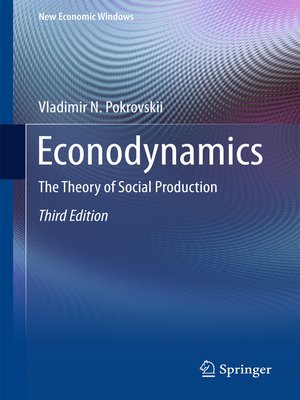Econodynamics
ebook ∣ The Theory of Social Production · New Economic Windows
By Vladimir N. Pokrovskii

Sign up to save your library
With an OverDrive account, you can save your favorite libraries for at-a-glance information about availability. Find out more about OverDrive accounts.
Find this title in Libby, the library reading app by OverDrive.



Search for a digital library with this title
Title found at these libraries:
| Library Name | Distance |
|---|---|
| Loading... |
This book, now in its third edition, explores how human populations grow, based on their creative abilities. To reconsider the theory of economic growth from a physicist's perspective, the book analyses the concepts of value and utility and their relationship to thermodynamic concepts. This approach allows the author to include characteristics of technology in descriptions of development and to formulate a phenomenological (macroeconomic, no-price fluctuations are discussed) theory of production as a set of evolutionary equations in one-sector and multi-sector approximations. The theory is proved to be useful for describing both national economies and global production in ancient times.
This monograph presents the topics in a compact and consistent manner and can be used by students with a background in physics and other natural sciences who wish to specialize in economics. It explains how the growth of production is connected with advances in technology, consumption of labour and energy and makes it possible to analyse past and present social production systems and to build scripts of future progress. The book is of interest to energy specialists engaged in planning and analyzing the production and consumption of energy carriers, and to economists wanting to know how energy and technology affect economic growth.
This third edition has been substantially revised and three brand new chapters have been added. Chapter 8 illustrates the robustness of the theory with the aid of statistical historical data from the Russian economy, while Chapter 12 is devoted to a reconstruction of the global production activity in ancient times. Chapter 13 discusses the principles of the organization of social production.







